The career trajectory in baseball is also slow. Players are almost never drafted directly into the major leagues. They train in the minors, often spending years in a kind of baseball purgatory — bouncing between Double A and Triple A — while self-doubt feeds on the constant change and uncertainty.
“It sucked to be honest with you, to be bouncing back and forth,” right fielder Mike Yastrzemski said of his time in the minor leagues. “Just being very bummed out, constantly.”
For a long time, he said mental health wasn’t taken seriously in baseball.
“I think it was, ‘If you’re not tough enough to handle this, then you shouldn’t be in the sport,’” Yastrzemski said. “And I think that was a really poor way to look at it. Athletes are humans, and there are things that are hard to deal with off the field, just like there are on the field.”
The Giants’ mental health resources have evolved steadily — from outside therapy referrals to part-time consultants to a full-time clinical psychologist who comes to every home game in San Francisco, Alexander, and another, based at the team’s spring training and rehab site in Arizona, Emily Payette, caring for 180 players across the Giants’ four minor league teams.
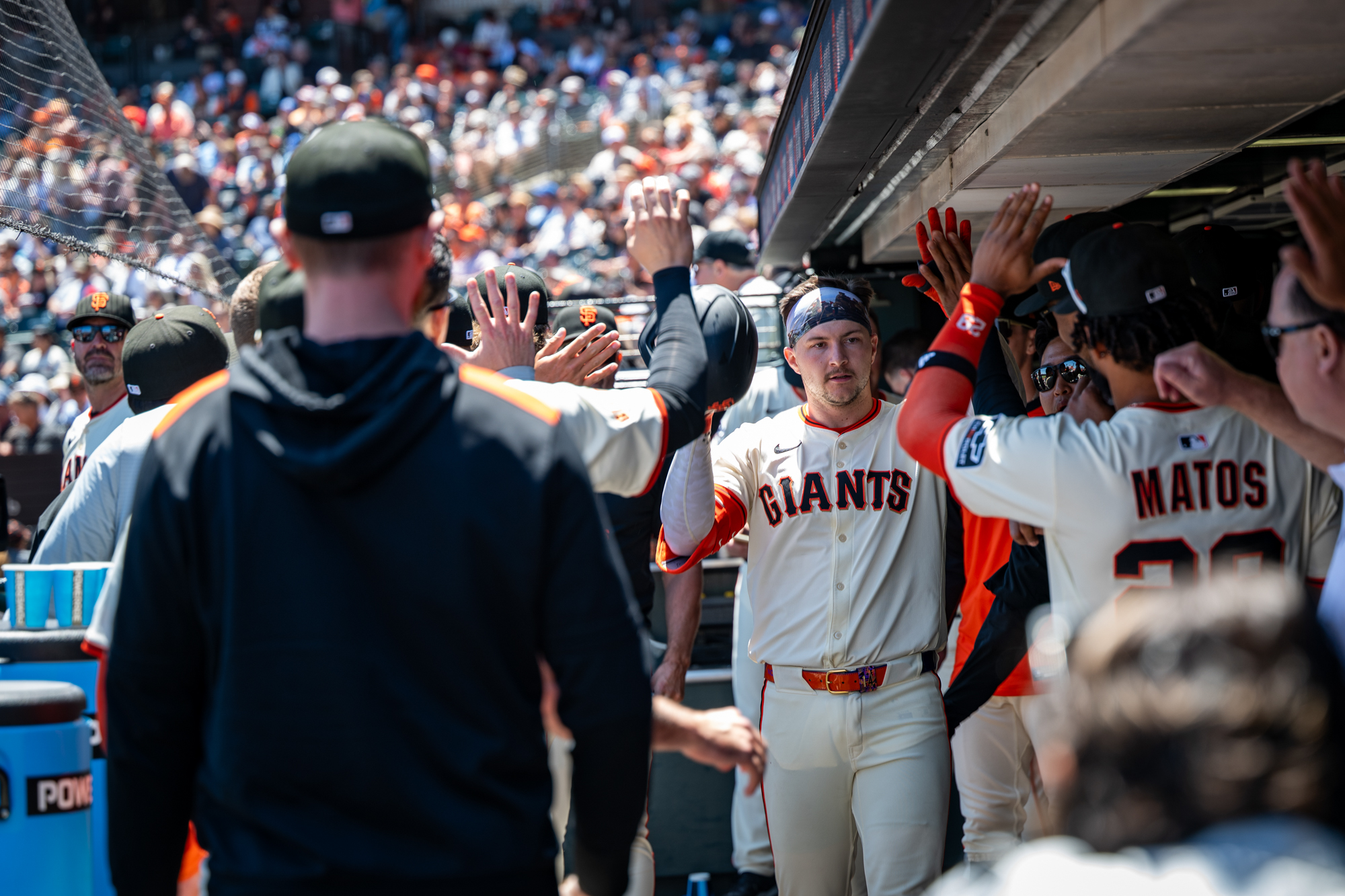 Patrick Bailey scores a run for the San Francisco Giants during a game against the Kansas City Royals at Oracle Park on May 21, 2025. (Beth LaBerge/KQED)
Patrick Bailey scores a run for the San Francisco Giants during a game against the Kansas City Royals at Oracle Park on May 21, 2025. (Beth LaBerge/KQED)
“If I know a guy’s having surgery or they’ve just been sent back here to Arizona for an injury, I’ll always check in with them,” Payette said, especially if the player is 26 — considered “older” in baseball — and facing a year of recovery. “It creates questions: ‘Am I gonna come back the same player? Will I be replaced?’ That’s a really dangerous place to be.”
The team hit an inflection point with mental health in the spring of 2020, when one of the athletes attempted suicide. Utility player Drew Robinson was getting called up to the majors, then demoted back to the minors — back and forth — when he suffered a series of injuries. He was 28.
“When I was home watching all my friends and teammates playing on my TV in my living room, I just felt completely isolated, alienated and lonely,” Robinson said.
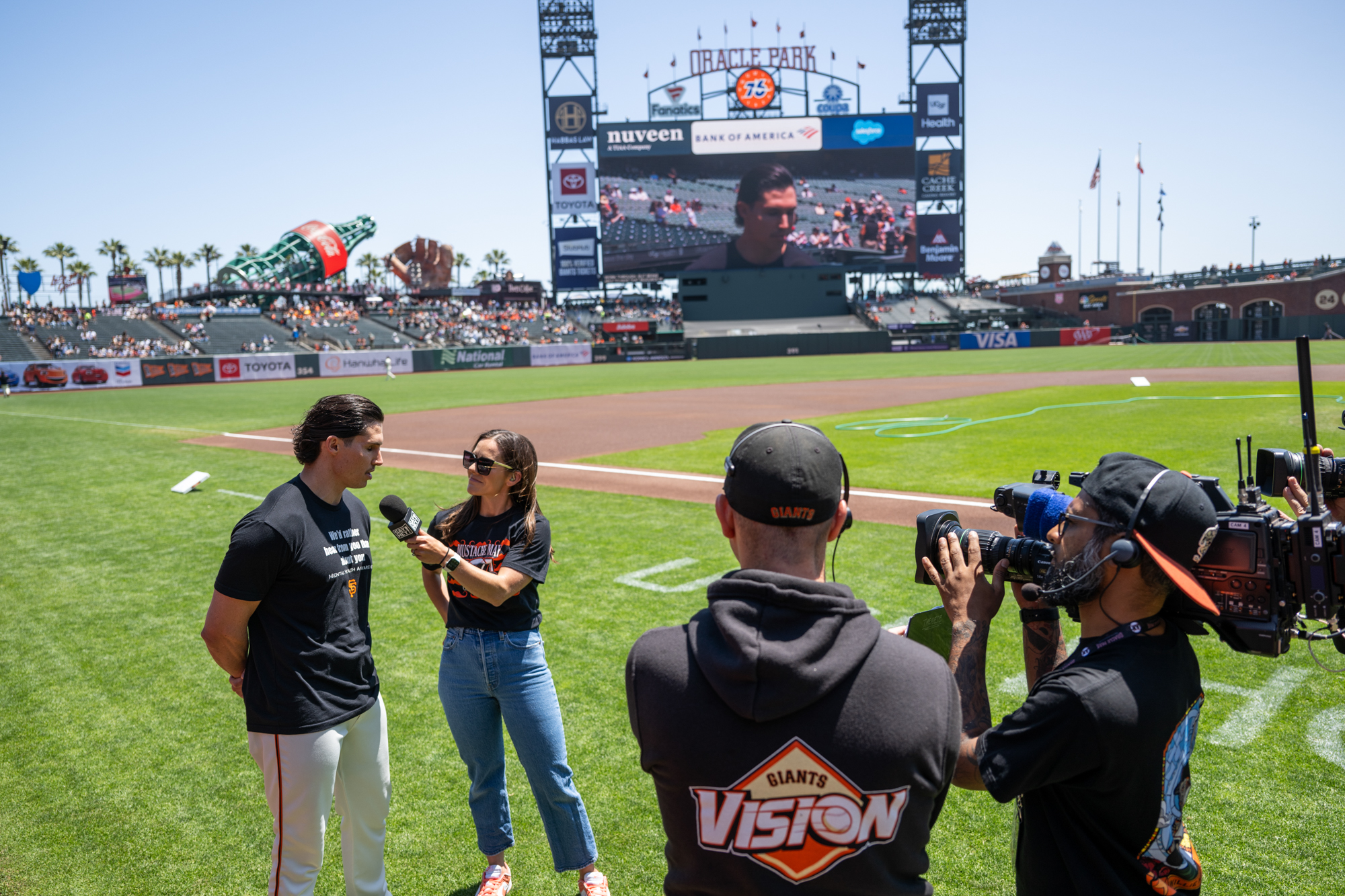 Drew Robinson speaks on the field before a game during Mental Health Day at Oracle Park on May 21, 2025. A former professional baseball player, Robinson now works as a mental health advocate with the San Francisco Giants. (Beth LaBerge/KQED)
Drew Robinson speaks on the field before a game during Mental Health Day at Oracle Park on May 21, 2025. A former professional baseball player, Robinson now works as a mental health advocate with the San Francisco Giants. (Beth LaBerge/KQED)
Then he and his fiancée broke up. Then the pandemic hit, baseball shut down and Robinson spent a “very scary” month quarantined alone in his house. But he said the main reason he tried to kill himself was that he was endlessly insecure and fiercely unable to admit it.
“I’m a man,” he remembered thinking to himself. “I got to tough this out. I can get through this. I don’t need help.”
Robinson survived his suicide attempt, and when he came back to play for the Giants’ AAA team, the Sacramento River Cats, Alexander noticed something unusual when she visited. After practice, six or seven guys asked to meet with her — a record number. They said they knew Robinson talked to her, and hearing their teammate extol the virtues of therapy, they figured she could help them, too.
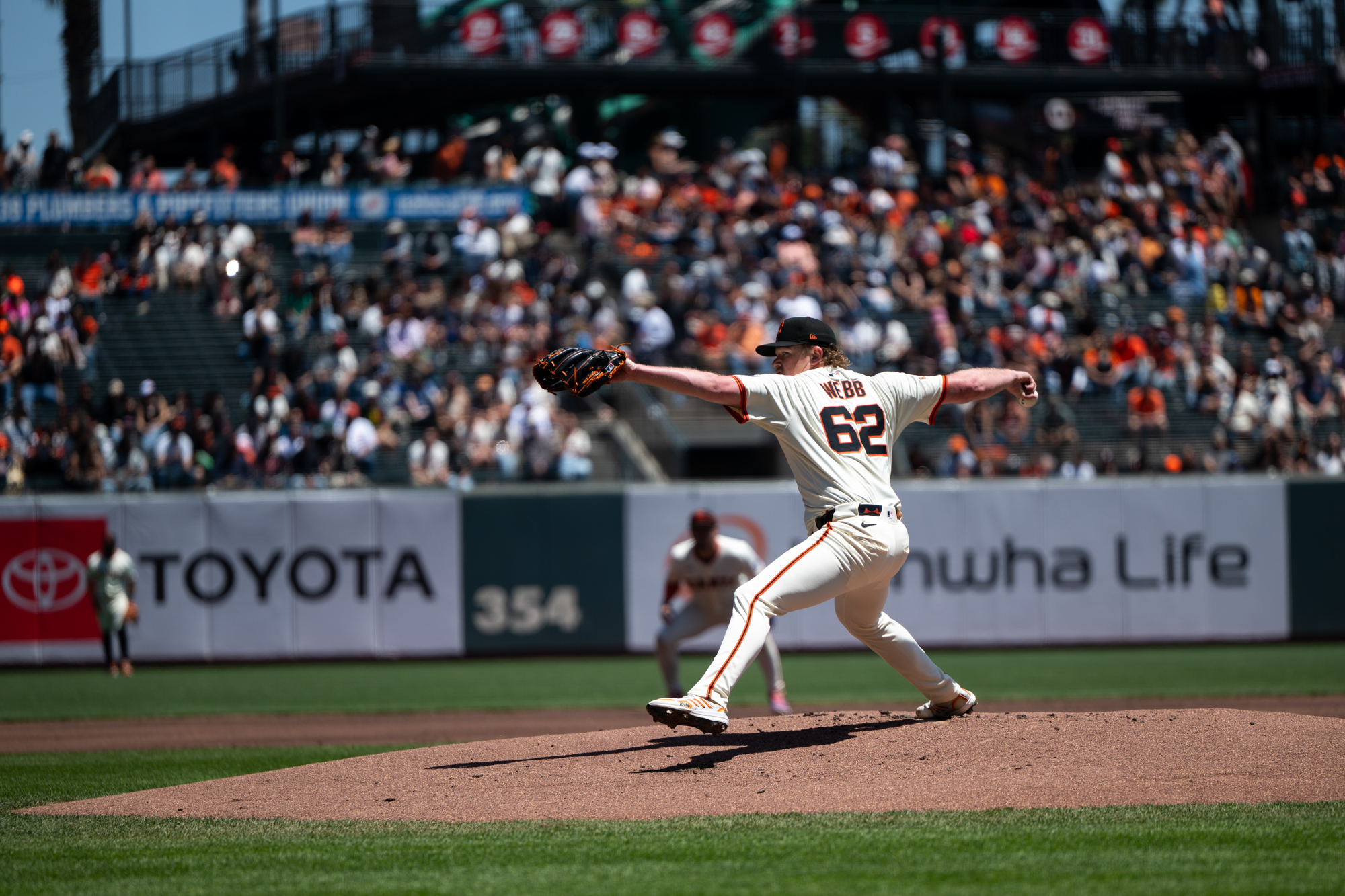 Logan Webb pitches for the San Francisco Giants during a game against the Kansas City Royals at Oracle Park on May 21, 2025. (Beth LaBerge/KQED)
Logan Webb pitches for the San Francisco Giants during a game against the Kansas City Royals at Oracle Park on May 21, 2025. (Beth LaBerge/KQED)
“I realized, Dr. Payette and I had given a million presentations to these guys, and they kinda listened,” Alexander said. “But when Drew spoke, they heard him differently.”
Alexander recognized the value of having a peer embedded in the team, a bridge between players and clinicians. So when Robinson retired in 2021, she immediately hired him to be the team’s full-time mental health advocate. He visits all the minor and major league teams, throws batting practice, runs drills, hangs out in the dugout through the ups and downs of the game, and gently lets baseball talk evolve into informal therapy before referring players to Alexander or Payette.
“I describe myself as the starting line for their mental health journey,” Robinson said. “I encourage them to have more emotional range in their life. I always use the example of when my mom is having the worst day of her life, she doesn’t need me to be this big, tough, macho, masculine man. She needs a nurturing, loving, empathetic son.”
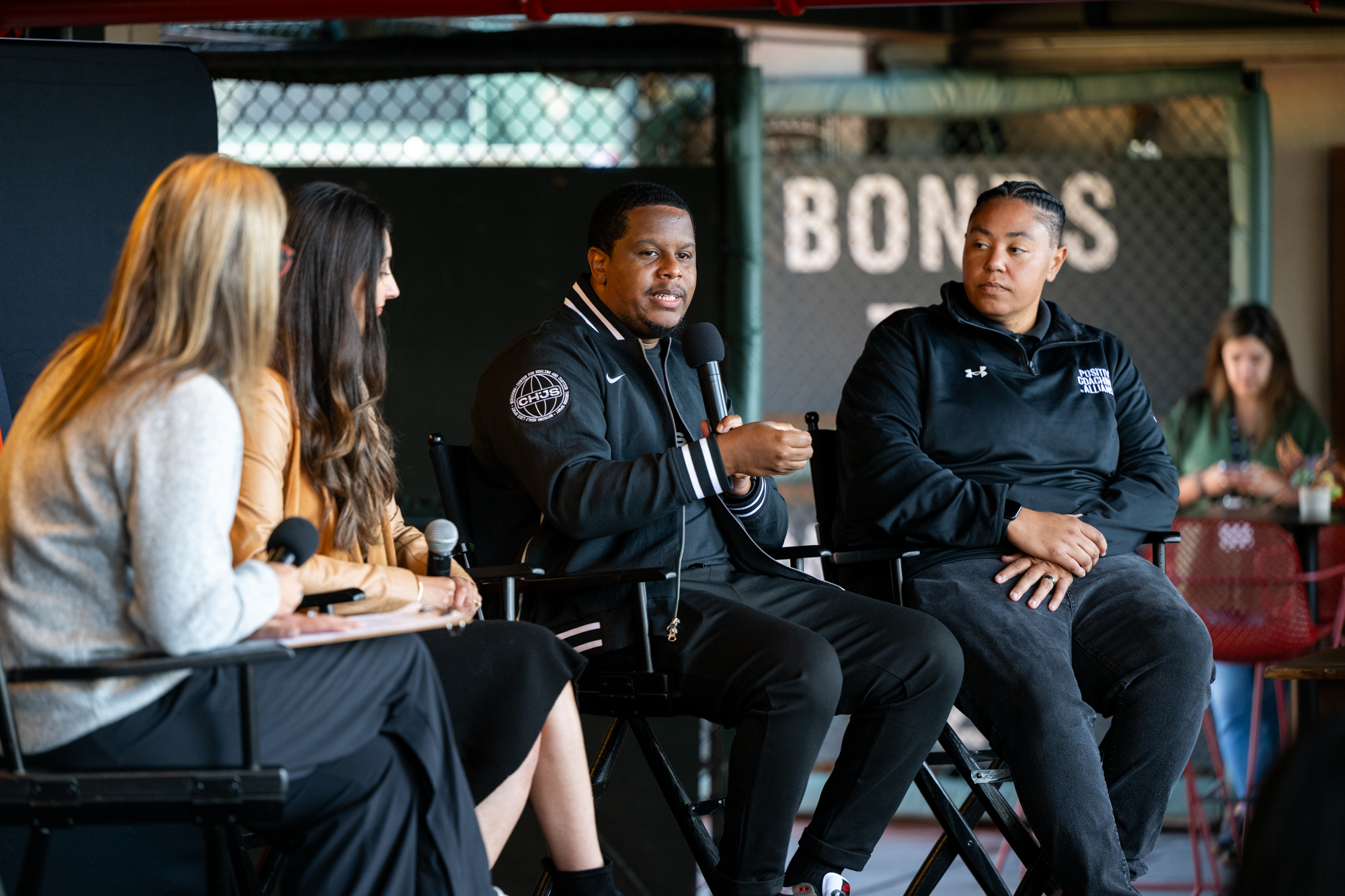 A pregame panel discussion on mental health during Mental Health Day at Oracle Park on May 21, 2025. (Beth LaBerge/KQED)
A pregame panel discussion on mental health during Mental Health Day at Oracle Park on May 21, 2025. (Beth LaBerge/KQED)
Robinson’s role is outward-facing, too.
At a home game in May, he offered opening remarks at a pregame panel on youth mental health, did an on-field interview on the jumbotron, then crossed the foul line to hug the mother of a 13-year-old little leaguer who died by suicide last year.
He also speaks at high schools and community events, and each year designs a “slogan shirt” for the players to wear during practice and press interviews. Last year’s said, “Strength isn’t always physical.” This year’s: “We’d rather hear from you than about you.”
“Initially, some of the staff were like, ‘Oooo, I don’t know, that might be a bit heavy for the clubhouse,’” Alexander said. “Drew went and talked to some of the players and they said, ‘No, we want to make a statement. We’ll wear that.’”
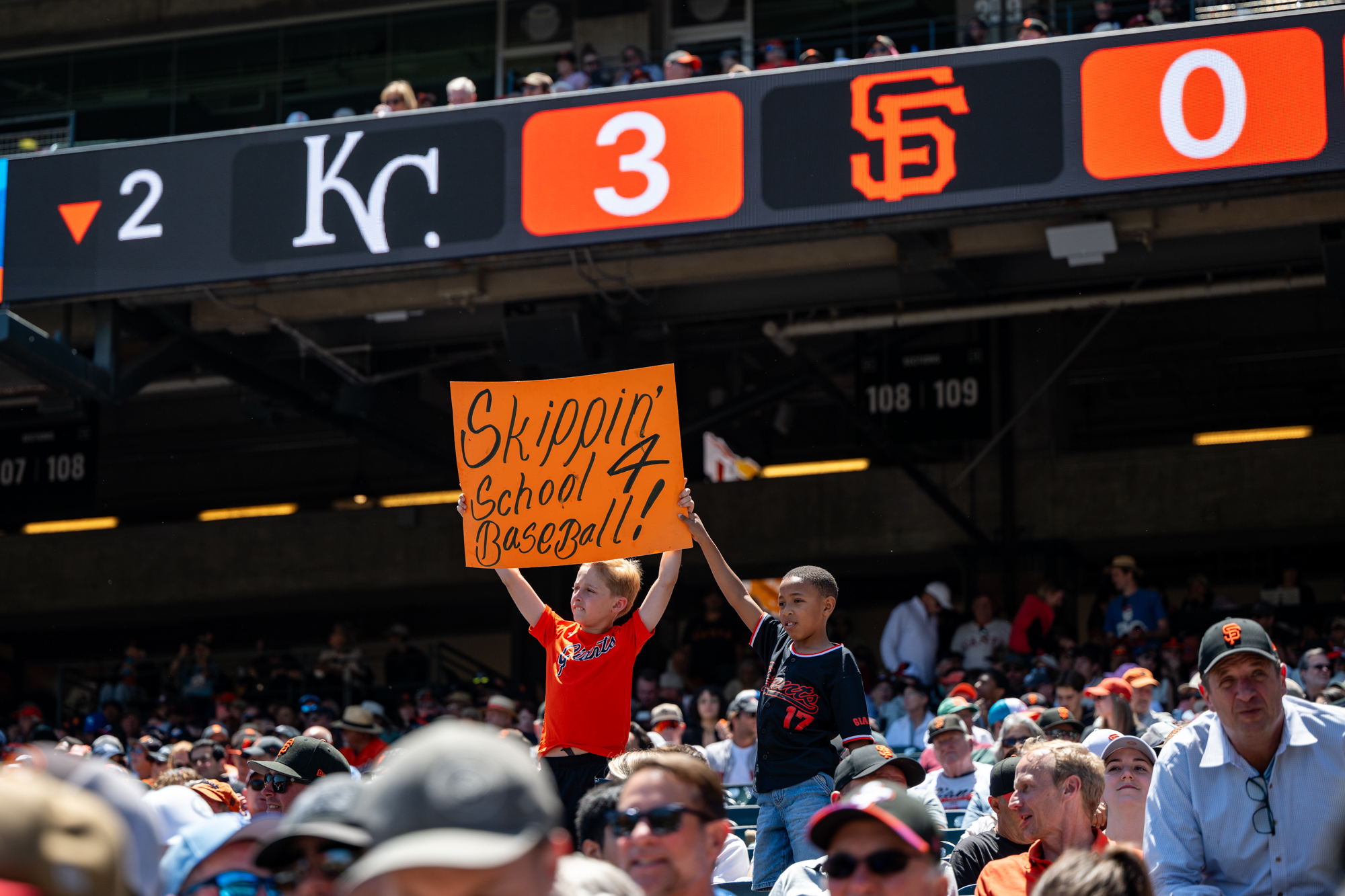 Kids hold a sign that says, ‘Skippin’ School For Baseball’ during a game between the San Francisco Giants and the Kansas City Royals at Oracle Park on May 21, 2025. (Beth LaBerge/KQED)
Kids hold a sign that says, ‘Skippin’ School For Baseball’ during a game between the San Francisco Giants and the Kansas City Royals at Oracle Park on May 21, 2025. (Beth LaBerge/KQED)
Athletes have an unparalleled platform. Fans idolize them, track their every move, and hang on their every word. Several Giants use that platform to talk about mental health. Pitcher Logan Webb has campaigned both inside and outside the franchise on substance use and the dangers of fentanyl poisoning, after his cousin, Kade, died from an overdose in 2021.
“The Giants deserve to be referred to as leaders in this space,” said Jon Coyles, MLB’s senior vice president of drug, health and safety programs, referring to the team’s internal and external mental health work. “They serve as a really nice, effective model, not just for the other MLB teams, but for all professional sports teams.”
Yastrzemski launched his own mental health awareness campaign called Mustache May. Back when he was struggling in the minor leagues, he grew a mustache just to make himself smile. The trend caught on with teammates and evolved into an annual monthlong event that simultaneously destigmatizes mental health and redefines masculinity. The annual Mustache May T-shirt reads: “Care for your homies.”
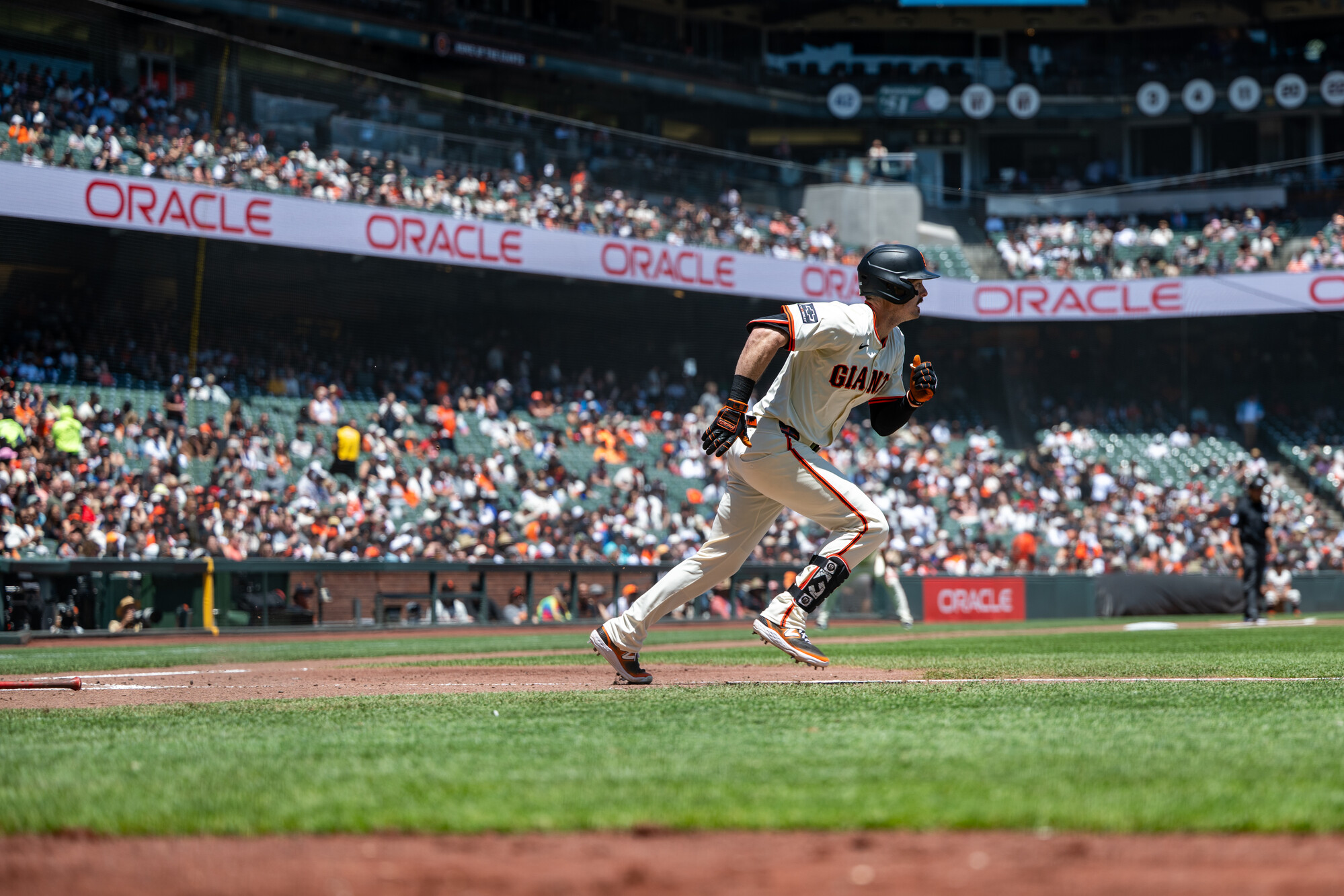 San Francisco Giants right fielder Mike Yastrzemski runs to first base after hitting the ball during a game against the Kansas City Royals at Oracle Park on May 21, 2025. Off the field, he advocates for mental health awareness in professional sports. (Beth LaBerge/KQED)
San Francisco Giants right fielder Mike Yastrzemski runs to first base after hitting the ball during a game against the Kansas City Royals at Oracle Park on May 21, 2025. Off the field, he advocates for mental health awareness in professional sports. (Beth LaBerge/KQED)
“We need to convince people that it’s OK to check on your friends, it’s OK to check on your family, it’s OK to ask how someone is doing and it’s also OK for them to tell you the truth,” he said. “It’s OK to not be OK at times.”
At a recent batting practice, a group of little leaguers lined up behind the cage, clutching baseballs that Yaz later signed and sealed with a fist bump. All the boys wore fake mustaches, from a blonde Hulk Hogan horseshoe to a long black handlebar that 13-year-old Burnam Lowell said made him look like “an Italian dad.”
None of the boys were exactly sure why they were wearing mustaches, but they are certain that facing a 100-mile-an-hour speedball is cool — and if the hero facing the pitch wanted to raise awareness around mental health, Burnam said, that’s cool too.
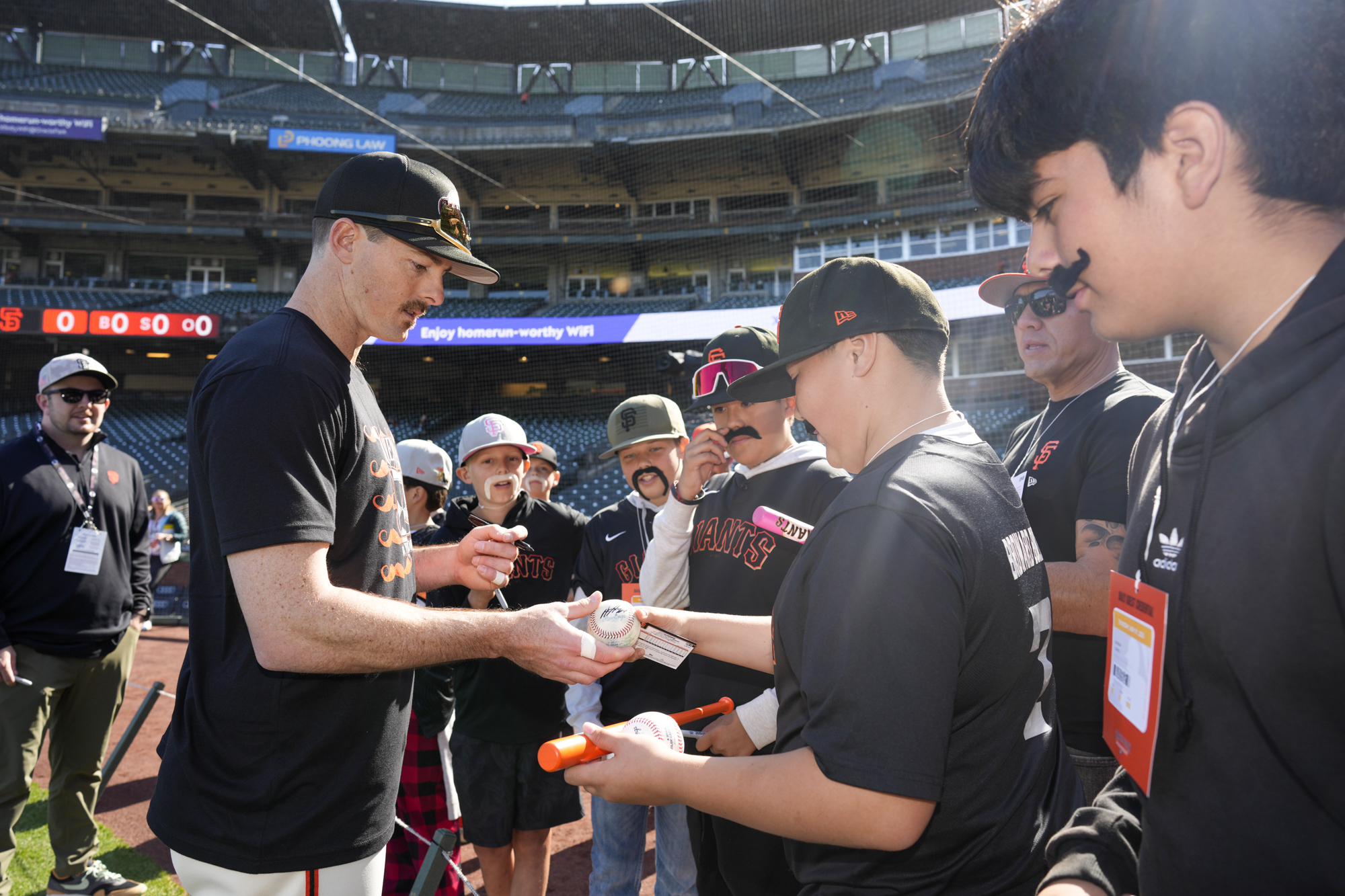 Mike Yastrzemski of the San Francisco Giants signs autographs for Little League players at Oracle Park in San Francisco on May 1, 2025. (Courtesy of San Francisco Giants)
Mike Yastrzemski of the San Francisco Giants signs autographs for Little League players at Oracle Park in San Francisco on May 1, 2025. (Courtesy of San Francisco Giants)
“A lot of people look up to these guys, and hearing it from an all-star is inspiring,” he said.
Mustache May exposes young kids to a new kind of literacy around mental health, teaching them to look out for their homies early on, said Gerard Choucroun, executive director of the Heart and Armor Foundation for veterans health, one of the philanthropic beneficiaries of Mustache May.
“It’s such a goof,” he said. “Having a mustache be the symbol of this big, powerful thing actually demystifies it in a way that I think is really healthy. It actually pulls some of the negative air out of mental health.”
Alexander is always amazed to see her work with players come full circle, from guided meditations in her tiny Zen Den to player-driven campaigns that reach thousands of young players and fans.
“These kids aren’t going to be wearing a mustache for me. But he does it, and guess what?” she said. “We got a whole audience with little mustaches.”



















